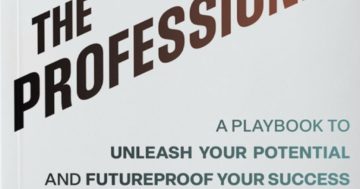Barbara Marquand* says there are three reasons why your parents’ well-meaning money guidance is probably not right for you.

Photo: monkeybusinessimages
Debbie Heffernan Gallant followed her dad’s advice to invest in his favourite mutual fund before she had even graduated from university in 1984.
He also encouraged her to put money in the stock market.
The not-so-great part of his advice: mutual funds vary, and this one invested a large portion in bonds.
That low-risk but low-earning choice was too conservative for someone with a long timeline to smooth out stock market ups and downs.
“This is something I might put my pre-retirement or even retired clients in, but not a 21-year-old just starting her work career,” says Gallant, now a certified financial planner.
Money decisions should be based on your individual needs.
Like Gallant’s father, your parents mean well, but their financial advice might not be right for you.
Here are three reasons why, and what to do instead.
- They don’t see the whole picture
“Every person needs to understand their goals, their priorities and their risk tolerance,” says René Bruer, CEO of Smith Bruer Advisors.
When advice is filtered through parents’ goals, “there’s going to be a disconnect.”
Your parents probably don’t fully understand your situation.
They may not even know how much money you make.
“Oftentimes, there isn’t enough information for even a financially savvy parent to provide sufficient advice,” says Jacob Milder, founder of Oak Street Investment Advisors.
They also might have biases.
Milder has a few clients whose parents don’t like the stock market and want their kids to invest in real estate instead.
“Parents’ advice is limited by what they know,” he says.
You can do better by getting objective advice from an expert.
Financial advisors provide guidance based on your needs.
Choices include hands-on human advisors, online automated services or a combination of the two.
- The financial industry has changed
We now have smartphones and apps to handle money in ways our parents never imagined.
“I’ve heard baby boomers say, ‘Kids these days don’t know how to balance a chequebook’,” says Autumn Campbell, president-elect of FPA NexGen, a professional group for young financial planners.
“But we have instant access to these accounts and can see pending transactions,” she says.
“Gen Y and Gen Z don’t even use cheques on a regular basis.”
Investors have new options.
Automated investment advisors, also known as robo-advisors, use advanced software and computer algorithms to build and manage clients’ investment portfolios online.
They’re a lower-cost option than most human advisors.
Hybrid services pair the automated management of a robo with access to human advisors when customers have questions.
- Lifestyles and work have changed
“The goal of financial planning — to live the most meaningful life with the resources available — has stayed the same,” says Ben Henry-Moreland, owner of Freelance Financial Planning.
But careers and living patterns have evolved.
Most of Henry-Moreland’s millennial clients are freelancers and contractors.
Their incomes are variable, so they need more liquidity — easily accessible money — than their parents might have at their age.
And overall, millennials change jobs more frequently than their parents.
A 2016 LinkedIn analysis of its members’ profiles found that the number of job changes in the first five years after university graduation has almost doubled in the past 20 years.
People who graduated with a bachelor’s degree between 2006 and 2010 worked for an average of about 2.85 companies, compared with 1.6 companies for those who graduated between 1986 and 1990.
Traditional choices based on staying at the same company or in the same city for decades make less sense now.
Kayse Kress, a certified financial planner, says younger clients often hear: “Unless you’re a homeowner, you’re throwing money out the window on rent.”
But it makes more sense to rent until you’re ready to settle in one area for a while.
“I thought I was behind if I didn’t buy a home,” says Campbell, who is 27.
“But then I realised I had a money script running through my head … that wasn’t considering my full financial picture.”
Create your own plan
Even if your parents are financially adept, it pays to craft your own financial plan.
“Blindly taking anyone’s advice is a bad idea,” says David S. Hodge, Vice-President at Gimbal Capital Management.
“Ask yourself: ‘What is it I’m looking for, and how do I want to get there? What do I want to do with my life?’”
“The financial stuff exists to serve that purpose.”
If you’ve made mistakes, the good news is you can usually fix them, Hodge says.
That’s what Gallant did after realising her dad’s advice didn’t fit her life: “I kept investing and learning and eventually transitioned my portfolio to be appropriately invested for my own much-longer time horizons and goals as well as my own risk tolerance.”
* Barbara Marquand is a personal finance writer at NerdWallet. She tweets at @barbaramarquand.
This article first appeared at www.nerdwallet.com.











